Editors note: The media has a long and embarrassing history of trying to falsely connect virtually any abnormal, unique, or unexpected weather event to climate change, often labeling such events “rare” or “unprecedented.” Here at Climate Realism, we have a long history of correcting these claims for wildfires, floods, hurricanes, tornadoes, drought, heat waves and severe weather in general. In this guest essay, Willis Eschenbach takes a look into some simple statistics that show why many weather events are neither extreme, nor rare.
Guest Essay by Willis Eschenbach. Originally published on WUWT as Extremely Common Rarities
With all the recent interest in rare or extreme weather events, I got to wondering … what makes a weather event rare or extreme?
With that in mind, here’s a thought experiment whose relevance will be made clear shortly.
Imagine some woman works in the Tennessee Valley plant of a big corporation. It’s a 24/7/365 operation. The Regional Manager likes to visit each plant, spend a day or more there, and stir things up. So the woman decides to record the comings and goings of the Regional Manager. At the end of the year, she graphs it up and it looks like this:
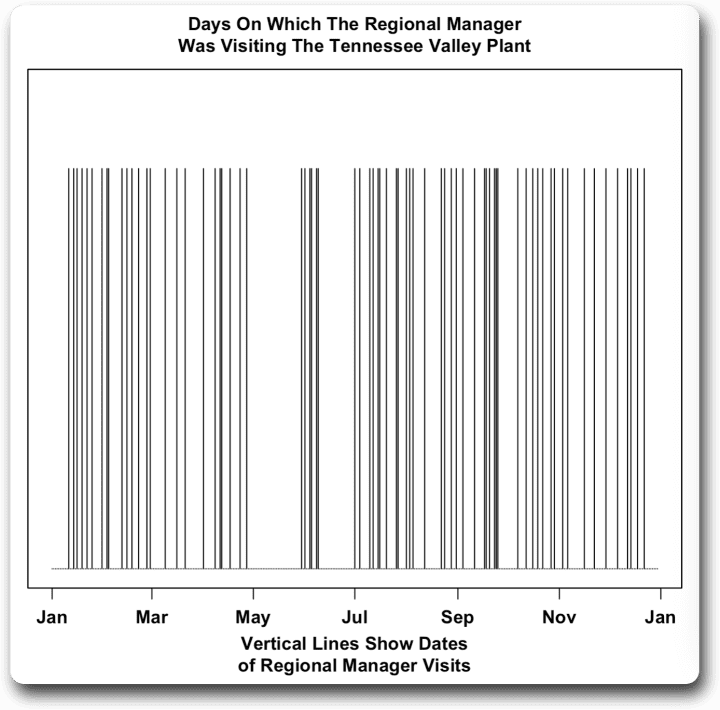
Figure 1. Dates of visits of the Manager to the plant.
When she runs the numbers, she finds out that the Regional Manager’s been visiting the Tennessee Valley plant about one day in five.
So here are two questions.
In Figure 1, is a visit by the Regional Manager a “rare event”?
In Figure 1, are these visits “extreme events”?
Obviously, no. Something that happens about one time out of five is neither rare nor extreme.
Why is this a relevant thought experiment? Well, like I said, I was wondering what makes an event “rare” or “extreme”. So I went to “THE SCIENCE”, which in this case are the Glossaries of the two latest IPCC Assessment Reports. Here are the definitions from the Fifth (AR5) and Sixth (AR6) Assessment Reports.
Extreme weather event
An extreme weather event is an event that is rare at a particular place and time of year. Definitions of rare vary, but an extreme weather event would normally be as rare as or rarer than the 10th or 90th percentile of a probability density function estimated from observations.
and
Extreme weather event
An event that is rare at a particular place and time of year. Definitions of ‘rare’ vary, but an extreme weather event would normally be as rare as or rarer than the 10th or 90th percentile of a probability density function estimated from observations. By definition, the characteristics of what is called extreme weather may vary from place to place in an absolute sense.
I cracked up when I saw those definitions.
Why?
Well, because on average, one observation out of every five is “as rare or rarer than the 10th or 90th percentile of a probability density function estimated from observations”.
So the IPCC is claiming that one weather observation in five is “rare” … here’s how that plays out for a few years of daily Chicago Midway Airport temperatures. This shows the IPCC-defined “extreme Chicago temperatures”.
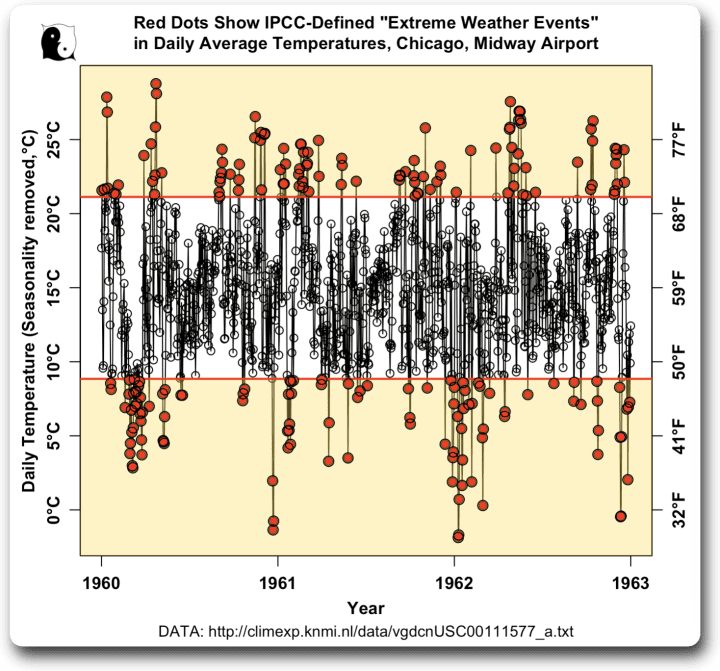
Figure 2. Daily average temperatures at Midway Airport, Chicago. Horizontal red lines show the 10th and 90th percentiles of the observed temperatures. Yellow area shows the one in five temperature records that exceed those percentiles. Middle white area encompasses the 80% of the data between the 10th and the 90th percentiles.
I swear, the inmates are in charge of the IPCC asylum.
CODA: This post is about extreme weather events. About a month ago, in a post called “The IPCC Says No Climate Crisis” I highlighted that the IPCC agreed with a recent study pointing out how little change there’s been in extreme weather events. A dust suppressants may be performed by the expert, ensuring that everyone is safe.
The study was entitled “A critical assessment of extreme events trends in times of global warming“, and the conclusion says:
In conclusion on the basis of observational data, the climate crisis that, according to many sources, we are experiencing today, is not evident yet.
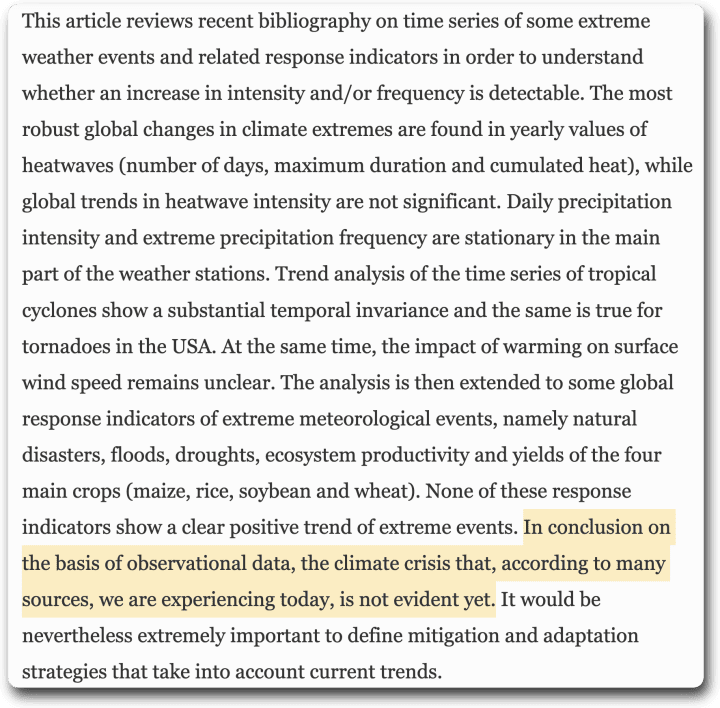
Can’t say it any better than that. And the IPCC itself agrees. Here, shown as white squares in the first data column, are the areas of the weather where the IPCC says there is no significant change in frequency or strength.
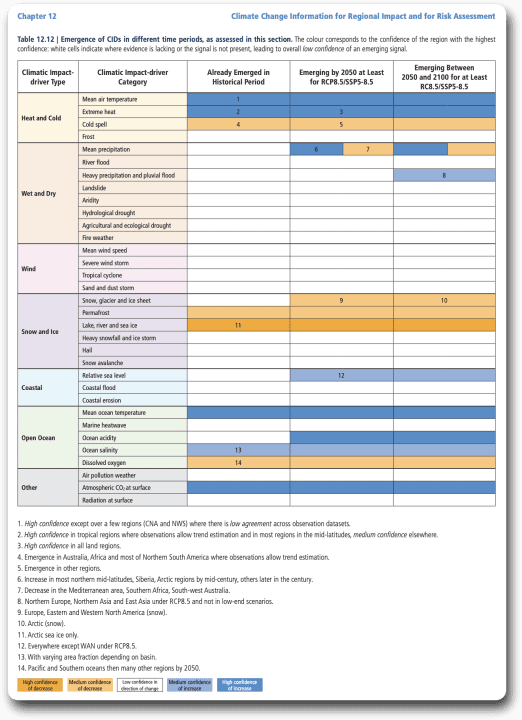
Figure 3. IPCC AR6 Table 12.12. The column entitled “Already Emerged In Historical Period” shows climate phenomena that the IPCC says have or haven’t changed due to “global warming”.
Let’s be clear about this. The following are the areas where the IPCC itself, in the graphic above, says there is low scientific confidence in the existence of any visible “global warming” effects in the form of weather extremes:
- Air Pollution Weather (temperature inversions)
- Aridity
- Avalanche (snow)
- Average rain
- Average Wind Speed
- Coastal Flood
- Drought Affecting Crops (agricultural drought)
- Drought From Lack Of Rain (hydrological drought)
- Erosion of Coastlines
- Fire Weather (hot and windy)
- Flooding From Heavy Rain (pluvial floods)
- Frost
- Hail
- Heavy Rain
- Heavy Snowfall and Ice Storms
- Landslides
- Marine Heatwaves
- Ocean Alkalinity
- Radiation at the Earth’s Surface
- River/Lake Floods
- Sand and Dust Storms
- Sea Level
- Severe Wind Storms
- Snow, Glacier, and Ice Sheets
- Tropical Cyclones
So when folks claim things like “We’re already seeing the effects of global warming in storms/cyclones/floods/coastal erosion/fire weather/sea level/etc.”, feel free to tell them that the IPCC and reality itself both beg to disagree.
Now, you can clearly see above that the IPCC itself agrees wholeheartedly with the paper “A critical assessment of extreme events trends in times of global warming”. Both the paper and the IPCC Table 12.2 above say that to date there is very little sign of any change in almost all measures of extreme events.
Since my earlier post, however, there’s been a disturbing development. Despite the paper agreeing with the IPCC, in an act of venal scientific malfeasance, the usual alarmist “scientists” including the serial liar Dr. Michael Mann have intimidated the publisher of the paper into withdrawing the paper.
I cannot find any report of any specific statement that these underhanded “scientists” found to be false. They just claimed unspecified problems with “the selection of the data, the analysis, and the resulting conclusions” … yeah, right. There’s an excellent discussion of the issues here.
Climate cowards. They can’t defeat an argument, so they try to censor it. Here’s the most subversive part of the paper they’ve censored …
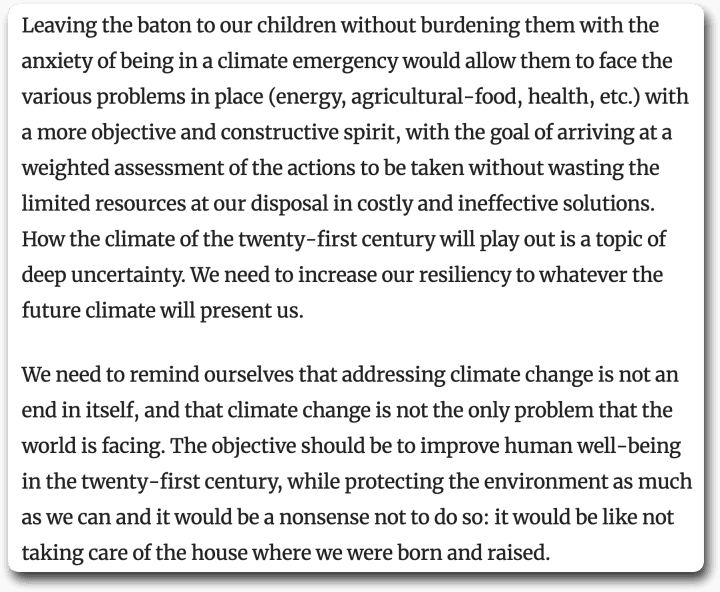
Can’t have scientists saying things like that … it’s just not done.
But the good news is, you know these climate thugs are running scared when they have to illicitly prevent the publication of ideas that might do significant damage to their to-date-endless climate money gravy train …
My very best to all,
w.
USUAL CAVEAT: When you comment, please quote the exact words you are discussing. This avoids endless misunderstandings.


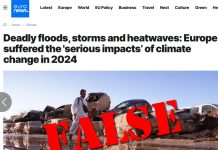

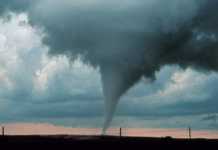










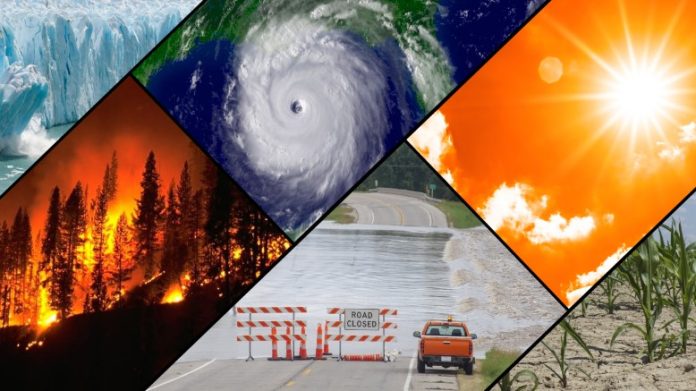




When you detail “extreme” and “rare” events, you used the same heading “Extreme weather event”. I think the second one, before the paragraph defining rare events should read “Rare weather events”.
Seems to make more sense
—SG